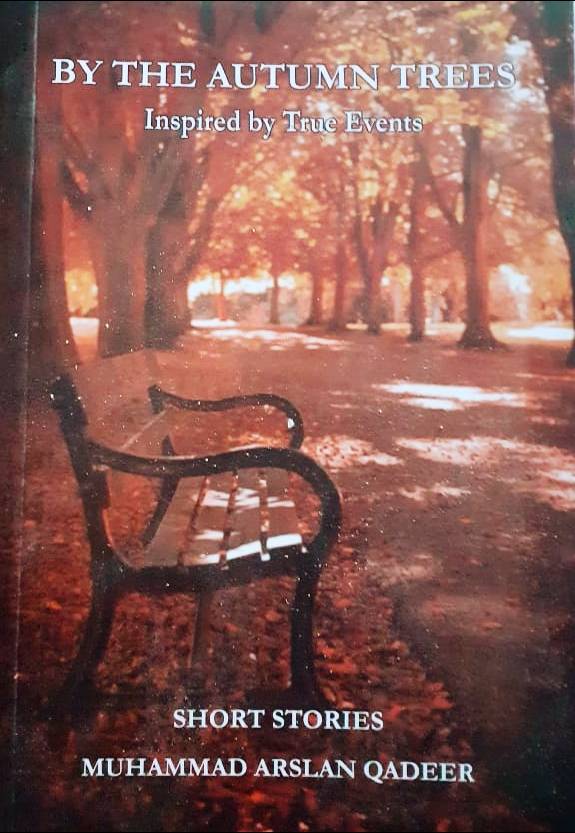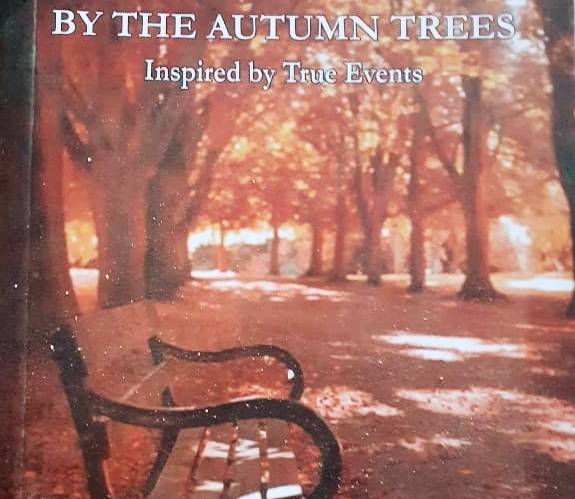Contemporaneously, there are only a handful of English short story-compilations contributed by Pakistani writers to the literary pool of the world. The book By the Autumn Trees by Muhammad Arslan Qadeer offers words equivalent to the way an individual would feel about his experiential reality. By the Autumn Trees greatly explores human emotions and as they tread through the crests and troughs of life’s journey. Having spent 27 years in the Pakistan Army, the author pens down short stories enriched with profound themes, imagery and a pristine expression.
The book creates new avenues for researchers and students of literature as it experiments with language and employs a linguistic facility that incorporates words from Urdu and Punjabi in order to promote the concept of linguistic hybridity, chutnification and polyglossia. The words have been carefully used in order to help the foreign reader to interpret the meaning in tandem with his own understanding. The author’s style is contemporary and his expression is unpretentious; he employs words from regional Pakistani languages without any jarring phrases, which lend semantic and lexicographic strength to the literary style and structure of these short stories.
The twelve short stories are not only thematically exoteric, but also are spread over a wide array of themes ranging from the lushness of companionships built on love and trust; the roller-coaster ride from a comforting life in the mother’s arms to the insurmountable training at the Pakistan Military Academy and further make the readers plunge into the notions of betrayal and loss that an innocent heart comes face to face with. The short stories narrate true personal experiences, incorporating fictional characters that add to the substance of the themes. One of the most important things about the book is the idea that with each short story, the reader feels connected to the writer in terms of discovering the organic rhythm that drives each theme.
“The Mulligatawny Soup”, which is the third short story in the book, makes the reader understand how life is synonymous to embarking on a train’s journey that leads one to unanticipated destinations, and how this journey is like a book with each of the stopovers and the people one meets at these stopovers, just like the chapters and characters of this book.

“The next few days that I spent after my retirement were a conundrum of mixed emotions. An orphaned feeling it was. A feeling of being left alone without a shelter or a shield. I missed my days at the academy. I missed eating in the main mess of the regiment. I missed the waiters who served me; the Chacha who gave me my first Army haircut.I missed the blue-eyed Pashtun sergeant and his pestering remarks. I missed it all…” The Mulligatawny Soup
In the story, the author reconnoiters the remnants of past friendships and comforts of civilian life as a young student at FC College that are shattered by the cataclysmic training sessions at the PMA Kakul. He further explores how after 27 years the same cataclysmic tradition maintains itself, only this time when he doffs his uniform to return to the civilian life forever.

The seventh short story “Grey”, lures the reader into an inquisition: the theme of befuddlement that every individual experiences at least once in a lifetime, incorporates a building up of a crescendo. The short story talks about how for any individual, there is no substitute to contentment, sometimes even if it lies in the nebulous, grey areas of his life; the comfort and the satisfaction that comes from not being cognizant of the black and white of life itself.
“The true accounts reveal hard lessons of life, which leave lasting impression on one's mind. The emotionally moving account of “A Valentine's Day”; “The Mulligatawny Soup” that has a taste of nostalgia, founding of a long lost and an un abounding true love in “By the Autumn Trees”, melting of a sane heart for “An Old Times' Sake”, turning of a blind eye for sake of peace and contentment in “Grey”, a ruthless assassination of a pure soul by stone-cold trickery in the “Snake Charmer”, and the sudden appearance of undeniable death in “Heaven Can Wait”, make this book a jewel in your hand.” Comments by Col. Shahryar, an avid reader
It is worth mentioning that in almost all of the twelve short stories, the author enthralls the reader into understanding how substantial topics of life such as love, death, betrayal, friendship, mediocrity, technology, family and patriotism can be explored in a non-academic setting. It would be unjust to not state that it is indeed a book with themes that resonate with the impulse of a reader who desires to unlearn everything in order to learn again.
In a nutshell, the themes in every short story are deep and include topics that can be explored from a psychoanalytic and post-colonial lens, at the same time the stories are free from heavily-convoluted theorizations; they offer a delectable warmth hungered by passionate readers to enjoy by the windows in their rooms with a cup of hot coffee.
(The book By the Autumn Trees by Muhammad Arslan Qadeer is available at The Readings.)






